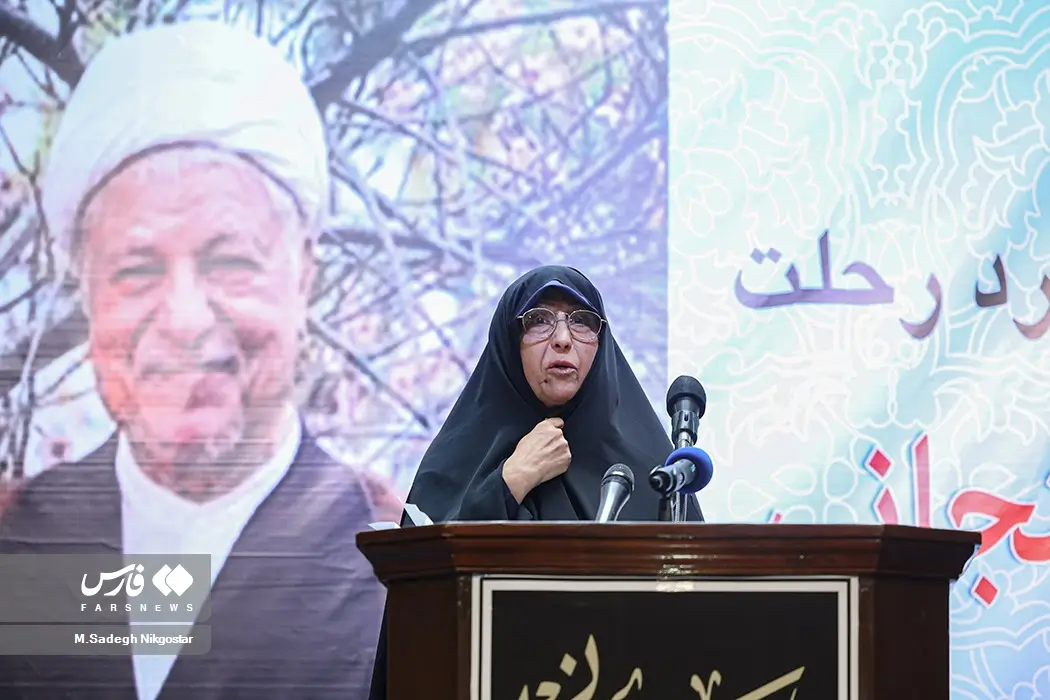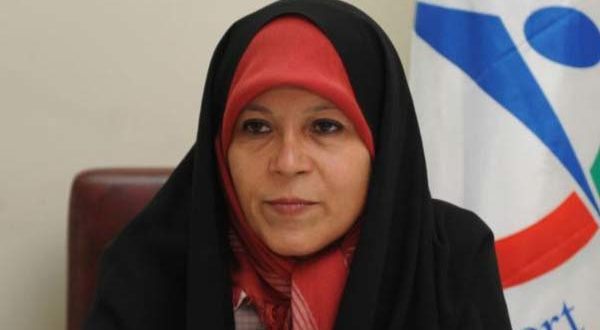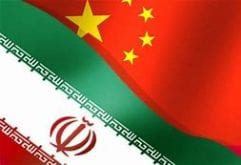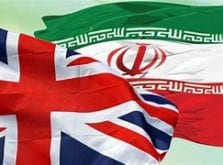iranintl – Seven years after her father’s death, a former Iranian president’s daughter reveals she was warned about his assassination due to leadership concerns after Khamenei.

Two Iran-Iraq war veterans showed up at the university where Fatemeh Hashemi was teaching. They warned her that there were those who wanted to kill her father, former President Akbar Hashemi Rafsanjani, and kill him in such a way that everyone would believe it was a natural death.
“I asked them why should some people want to kill my father? They said because they are worried about [what would happen] after Mr. Khamenei,” the eldest daughter said in an interview with the reformist Etemad daily that was published Thursday.
Mystery still surrounds Rafsanjani’s death, a relatively pragmatist revolutionary cleric. The influential politician’s body was discovered in a swimming pool near his office on January 8, 2017. Officially, his death was attributed to drowning following a cardiac arrest, with no witnesses present at the time.
Rafsanjani’s family has repeatedly raised concerns that he might have been murdered. They point to several suspicious circumstances, including delays in getting him to the hospital, the lack of access to CCTV footage from the swimming pool and his office, the absence of a post-mortem examination despite their requests, a rushed burial, and the disappearance of highly confidential documents, including diaries and his last will and testament, from his office safe shortly after his death.
In 2019, Fatemeh Hashemi had spoken of the visit of the two men whose identity she said was unknown to her but had never suggested that the alleged murder of her father had any connection to the leadership challenges in the regime. She had also said that she reported the warning to her father and after his death, to the Supreme National Security Council (SNSC), which she said, did not follow up on the matter.
At the time of Rafsanjani’s death, two others were considered potential challengers to leadership after Supreme Leader Ali Khamenei’s death: The ultra-hardliner Ayatollah Mohammad-Taghi Mesbah-Yazdi and Khamenei’s own son, Mojtaba, who some pundits speculated was being groomed to succeed his father. The elusive Mojtaba has long been referred to by hardliners as an Ayatollah to denote his high clerical rank.
Mesbah-Yazdi, who was a fundamentalist ideologue advocating the absolute rule of the jurisconsult (Velayat-e Faqih, or Supreme Leader), passed away in January 2021 at the age of 83. He enjoyed much influence among the top brass of the Revolutionary Guard (IRGC) and political hardliners.
Mesbah-Yazdi and Rafsanjani were both members of the Assembly of Experts, an eighty-eight-member clerical body responsible for appointing a new Supreme Leader and supervising his activities. However, this constitutional provision has largely remained inactive over the years, as Khamenei has filled the assembly with loyalists.
Rafsanjani lost much of his former influence in the assembly after 2009 and was replaced by another high-ranking cleric, Mohammad-Reza Mahdavi-Kani when he withdrew from the elections in 2011.
Rafsanjani had played an instrumental role in the accession of Ali Khamenei to leadership in 1989 by convincing the Assembly of Experts that being a religious source of emulation (marja’-e taghlid) — a qualification that Khamenei lacked — was not considered as a leadership requirement. He also claimed that the late leader, Ruhollah Khomeini, had once suggested Khamenei’s name as his successor.
Khamenei and Rafsanjani, however, had a significant falling out when Khamenei publicly endorsed Mahmoud Ahmadinejad’s presidential candidacy in 2009, going against all other rival candidates, including Rafsanjani. In a significant speech, Khamenei expressed that Ahmadinejad’s views were “closer” to his own than those of any other candidate, including his “friend of fifty years,” Rafsanjani.
“After 2016 [Rafsanjani] openly said here and there that he had made a mistake in choosing Khamenei [as leader],” Berlin-based political analyst Mehdi Mahdavi-Azad told Iran International, pointing out that according to people close to Rafsanjani, including his daughters and his advisor Gholam-Ali Rajaei, around the same time pressures had increased on him and there had been warnings of a threat to his life.
Mahdavi-Azad also highlighted a Khamenei speech on the day that Rafsanjani died, which could be interpreted as an attack on him and questioning his revolutionary credentials.
Playing with Rafsanjani’s first name, Akbar, which means bigger or older, Khamenei suggested that the Islamic Republic could be harmed if a “reprobate or misled brother” turned out to be the “bigger Satan” and played the role of the real Satan in misleading the people. “We must be vigilant, this person is our enemy, too,” he said.
During the funeral prayers for Rafsanjani, Khamenei’s omission of a sentence that traditionally attests to God that the deceased had displayed nothing but “benevolence and goodness” during his life attracted significant attention.
Mahdavi-Azad told Iran International that based on the evidence of a cover up and allegations made by the family, who insist Rafsanjani could not have died a normal death, Khamenei should be held responsible for ordering his killing.
 Shabtabnews In this dark night, I have lost my way – Arise from a corner, oh you the star of guidance.
Shabtabnews In this dark night, I have lost my way – Arise from a corner, oh you the star of guidance.



